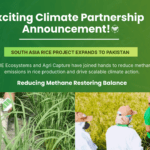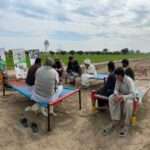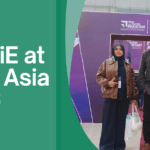News
SAWIE celebrates World Food Day on “Rights to Food and a Better Future”
On World Food Day, SAWIE organized an insightful session under the theme “Rights to Food and a Better Future”. The event brought together leading experts to discuss critical global and national challenges in food production, security, and sustainability. Esteemed speakers included Dr. Muhammad Sultan (Bahauddin Zakariya University Multan), Dr. Aayesha Riaz (PMAS Arid University Rawalpindi), Dr. Wajid Nasim Jatoi (Islamia University Bahawalpur), Mushtaq Gill, and Dr. Tassawar Hussain Malik (Pakistan Central Cotton Committee), who shared their thoughts on these pressing issues.

Top News
Global Food Production and Challenges:
- The world has approximately 1.5 billion hectares of land suitable for cultivation, contributing to an impressive 9 billion tons of food production each year. This includes:
- 2.8 billion tons of grains (including wheat, rice, and corn).
- 2.1 billion tons of vegetables and fruits annually.
- 340 million tons of meat, with poultry meat accounting for 35% of global meat production.
- 1.6 trillion eggs produced each year, making eggs a crucial global protein source.
Despite this massive food output, hunger and food insecurity remain widespread. In 2021, it was reported that:
- 828 million people globally suffered from hunger.
- 2.3 billion people faced moderate or severe food insecurity, representing 29.3% of the global population.
- More than 900 million people are severely food insecure, lacking reliable access to nutritious food.
Additionally, 149 million children under 5 were stunted due to malnutrition, highlighting the dire consequences of food insecurity on child health.
Food Loss and Waste:
One-third of all food produced globally—about 1.3 billion tons—is lost or wasted annually, costing the global economy nearly $1 trillion. This wasted food could potentially feed up to 1.26 billion hungry people every year. Reducing food loss and waste is crucial to addressing global hunger and achieving a sustainable future.
Agriculture, Climate Change, and Sustainability:
Agriculture contributes approximately 24% of global greenhouse gas emissions (IPCC). Climate change is expected to reduce crop yields by 10-25% by 2050 in some regions, further exacerbating food insecurity.
With 70% of the world’s poor living in rural areas and depending on agriculture, sustainable agricultural practices are essential to safeguarding livelihoods and food security. To feed the projected 9.8 billion global population by 2050, food production needs to increase by 60%, but this must be achieved in a sustainable way.
Pakistan’s Agricultural Contribution:
Pakistan is a key player in global food production, with about 22 million hectares of cultivable land. The country is known for producing:
- 27 million tons of wheat annually, making it one of the top wheat producers worldwide.
- 9 million tons of rice annually, positioning Pakistan as the 4th largest rice exporter.
- 81 million tons of sugarcane and 7.5 million tons of maize (corn) are produced annually.
- 15 million tons of fruits and vegetables, including mangoes, citrus, and apples.
Water Loss and Wastage:
Water is a critical resource in agriculture, and globally, 70% of freshwater withdrawals are used for farming. Unfortunately, about 60% of this water is lost due to inefficient irrigation, evaporation, and runoff, amounting to around 1,500 trillion liters of water lost annually.
Municipal water systems also suffer from significant inefficiencies, with 20-30% of water lost through leaks, amounting to 45 billion cubic meters each year.
In Pakistan, where agriculture consumes 93% of the country’s total water resources, up to 50-60% of water is lost through inefficient practices. Pakistan loses around 50 million acre-feet (MAF) of water annually due to poor water management. This amount of water could meet the needs of approximately 100 million people.
Gratitude and Future Collaboration:
We are deeply grateful to our esteemed speakers, Dr. Muhammad Sultan, Dr. Aayesha Riaz, Dr. Wajid Nasim Jatoi, Mushtaq Gill, and Dr. Tassawar Hussain Malik, for sharing their valuable insights on these critical issues.
As we reflect on the discussions held during this World Food Day session, SAWIE remains committed to fostering collaboration and addressing the challenges of food security and sustainable agriculture. We look forward to continuing our work with these experts and other partners to create a better future for all.
Stay tuned for more updates and initiatives from SAWIE as we strive to ensure the right to food and promote a sustainable, secure food system for generations to come



